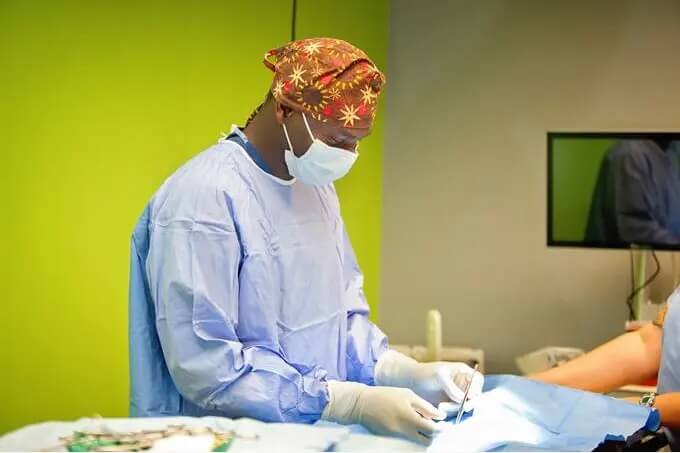 Abdominal surgery is performed when there is a necessity to assess any of the abdominal organs such as the stomach, small and large intestines, the pancreas, the liver, the gall bladder, the spleen, the kidneys, the urinary bladder, the ovaries, uterus, or a retained testicle.
Abdominal surgery is performed when there is a necessity to assess any of the abdominal organs such as the stomach, small and large intestines, the pancreas, the liver, the gall bladder, the spleen, the kidneys, the urinary bladder, the ovaries, uterus, or a retained testicle.
Does my pet need abdominal surgery?
If your pet is experiencing one or many of these symptoms, he/she might need abdominal surgery:
- Excessive drooling
- Vomiting/Diarrhea/Not Eating
- Painful abdomen
- Swollen abdomen
- Inability to urinate despite the effort
- Painful urination +/- bloody urine
- Pus coming out of the vulva in females
- Significant weight loss.
What to do next?
If your pet is experiencing one or many of these symptoms, a sick pet exam is recommended to investigate these symptoms further. Once in our office, a full history will be collected, and a physical examination performed. Further diagnostics including but not limited to bloodwork, urine test and abdominal x-rays will be the typical baseline database to assess your pet’s health status based on the presenting complaints and physical examination findings. Abdominal ultrasonography and/or specific sample collection might be further required depending on how much additional information is needed to establish a diagnosis prior to performing abdominal surgery. It is very important to be aware that abdominal surgery can be an extension of our physical examination and is sometimes necessary to accurately collect tissue samples and rule things out. As such, if a sample result comes out negative, that can be valuable information in providing our clients with peace of mind and giving us all direction toward informed medical management options.
At Liberty Animal Hospital, we share the same goals as you in that we want to help your pet be back to his/her normal self and reestablish that bond with you. If you are concerned at all, please give us a call or make an appointment online, and we will be happy to assist you.
